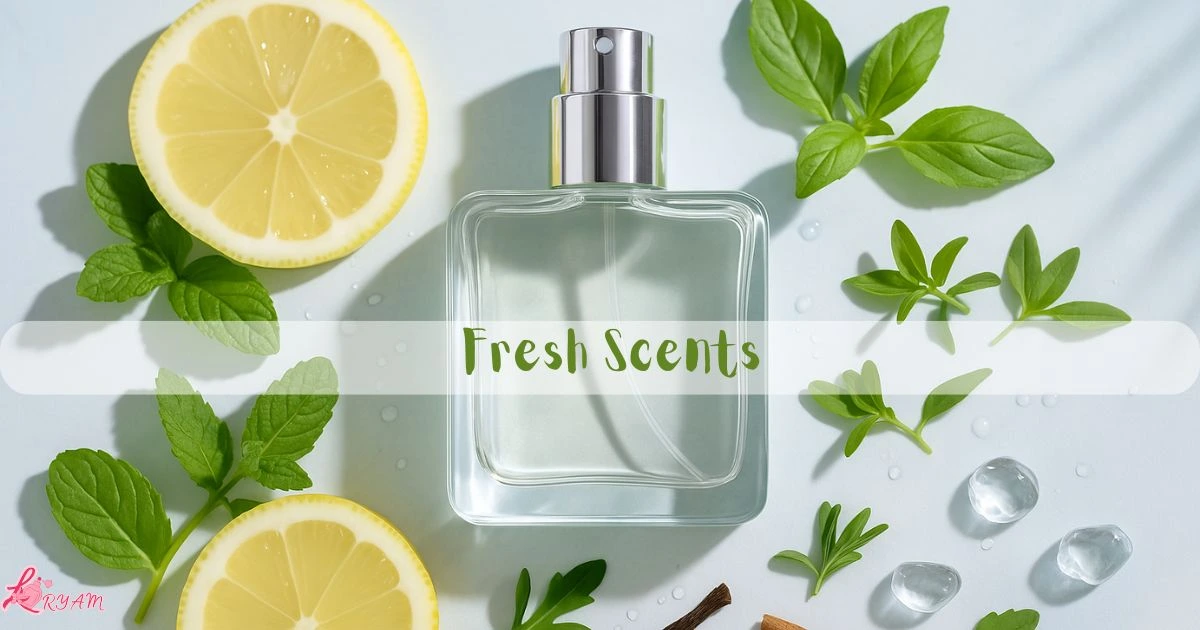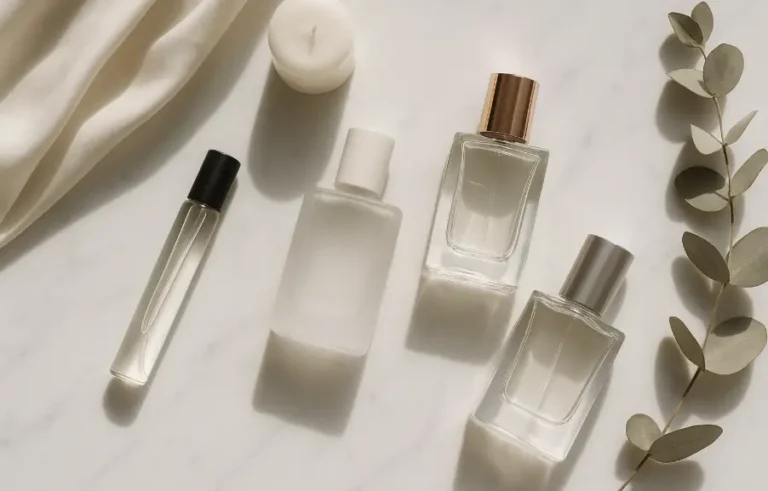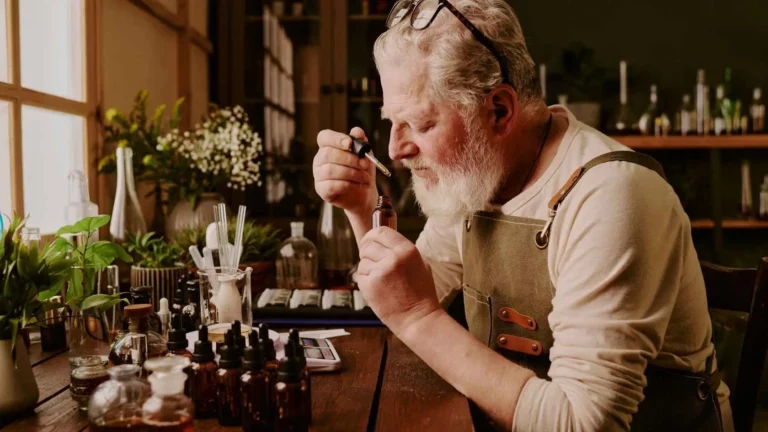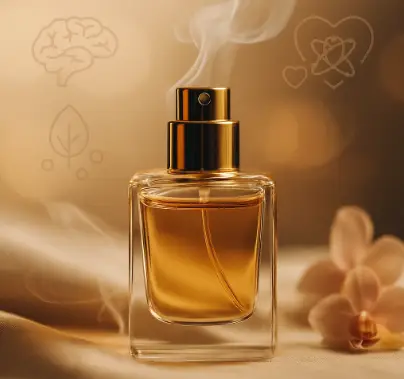Types of Scents: Fragrance Families Explained for Perfume, Candles AMore
Ever wondered why some perfumes feel fresh and citrusy, while others leave a warm, sensual trail that lingers for hours?
The answer lies in the types of scents also known as fragrance families used in each perfume. These scent categories help define not just the fragrance itself, but also how it evolves on your skin, the emotions it evokes, and when or how it should be worn.
In this complete guide, you’ll explore:
The main fragrance families used in perfumery
The structure of perfume (top, middle, and base notes)
How to choose the right perfume scent for your style and season
And how these scent types extend into candles, room sprays, and more
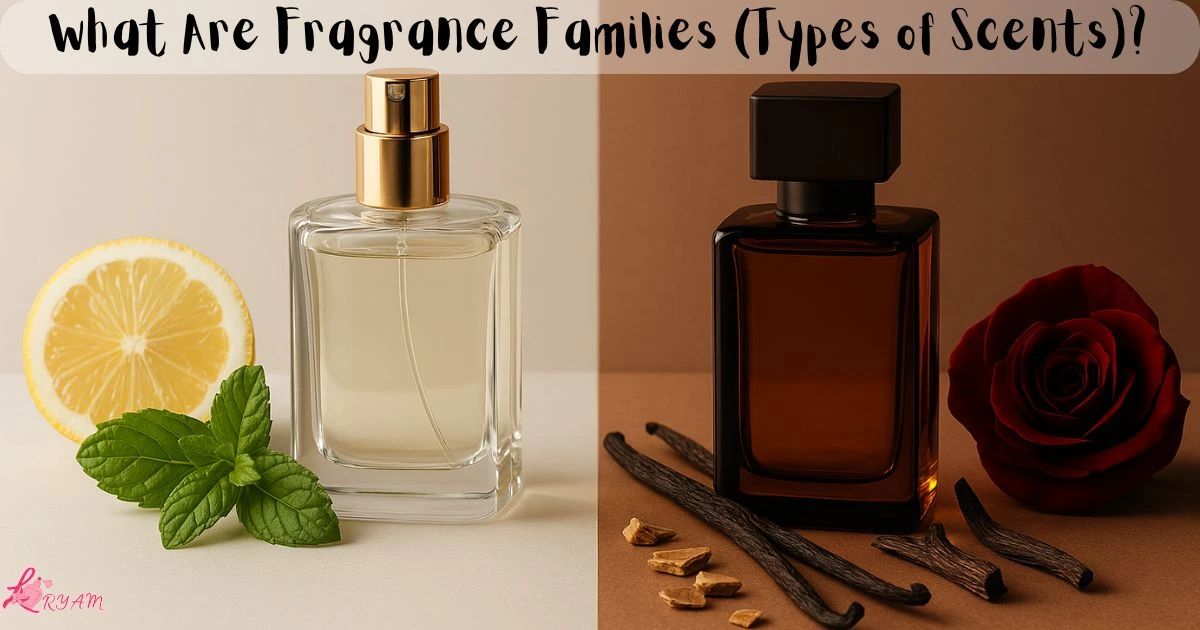
What Are Fragrance Families (aka Types of Scents)?
Fragrance families are categories that group perfumes based on dominant scent characteristics.
Perfumers use these to design and describe scents. Consumers use them to find fragrances that match their mood, personality, or season.
Think of them as the genre of fragrance—like how music is grouped into rock, jazz, classical, or pop.
These scent families also help you:
Shop for perfumes with confidence
Understand scent layering and evolution
Build DIY blends or signature scents
How Fragrance Works: The Scent Pyramid
Before we break down scent types, it’s important to understand the perfume pyramid:
| Layer | Description | Duration | Common Notes |
|---|---|---|---|
| Top Notes | First impression (lightest) | 5–15 minutes | Citrus, herbs, light fruits |
| Middle Notes | The heart of the scent | 2–4 hours | Florals, spices, greens |
| Base Notes | Lasting foundation (deepest) | 4–12+ hours | Woods, resins, vanilla |
💬 Explore more: Perfume Notes Explained
The 7 Main Perfume Scent Families (With Examples & Profiles)
Here are the primary scent families found in modern perfumery, with popular perfume examples and ideal use cases:
1. Floral Scent
| Details |
|---|
| Scent Profile: Romantic, soft, powdery |
| Common Notes: Rose, jasmine, lily, peony, ylang ylang |
| Popular Perfumes: Chanel No. 5, Marc Jacobs Daisy |
| Ideal For: Daytime, spring/summer, romantic settings |
🌸 Subfamilies: Soft floral, fruity floral, floral aldehydic
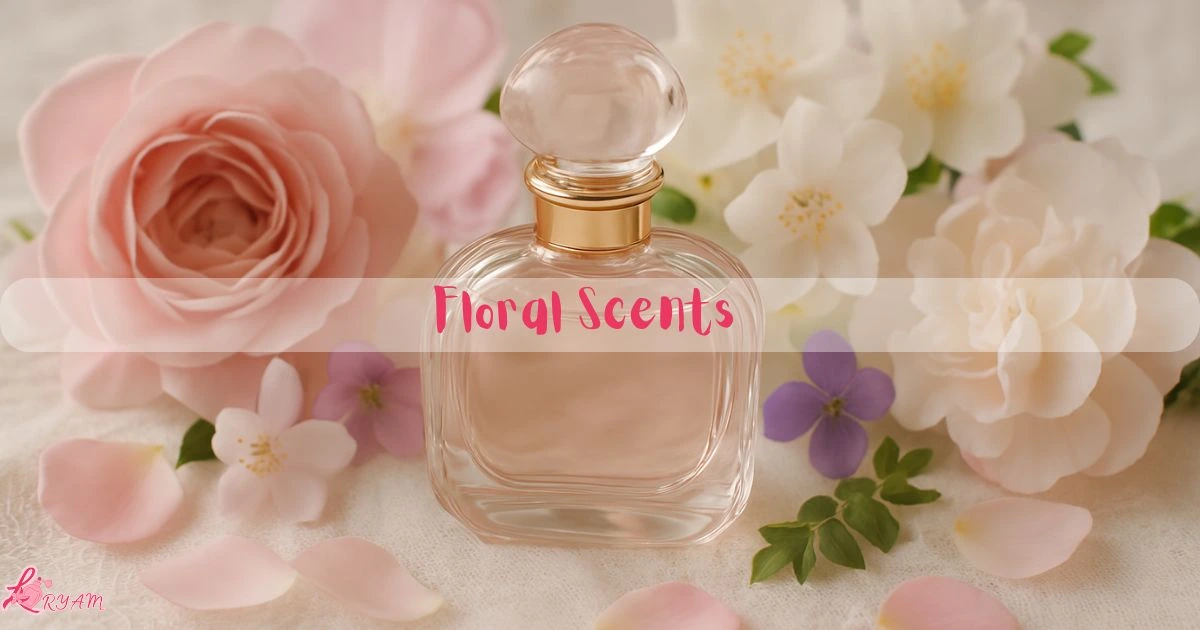
2. Woody Scent
| Details |
|---|
| Scent Profile: Earthy, dry, warm |
| Common Notes: Sandalwood, vetiver, cedar, patchouli |
| Popular Perfumes: Tom Ford Oud Wood, Le Labo Santal 33 |
| Ideal For: Fall/winter, evening, unisex blends |

3. Oriental Scent (Amber)
| Details |
|---|
| Scent Profile: Spicy, resinous, luxurious |
| Common Notes: Vanilla, amber, incense, spices |
| Popular Perfumes: YSL Black Opium, Dior Addict |
| Ideal For: Cold weather, signature evening scents |
🌙 Rich and sultry, perfect for nighttime or winter layering.
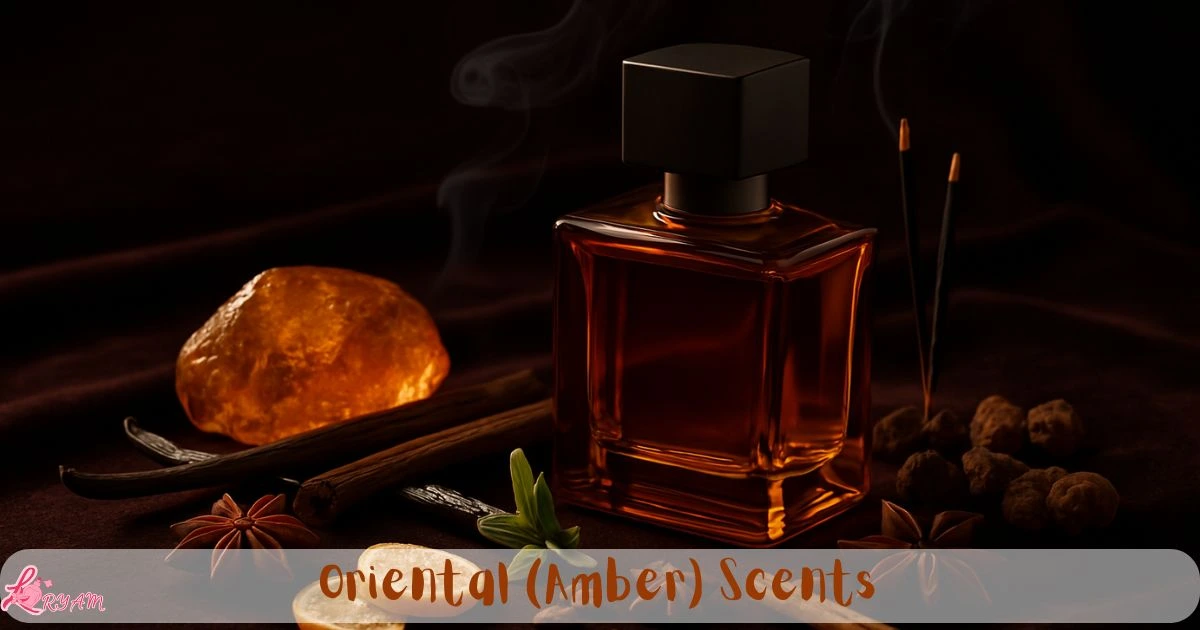
4. Fresh Scent
| Details |
|---|
| Scent Profile: Clean, citrusy, aquatic |
| Common Notes: Lemon, bergamot, green tea, cucumber |
| Popular Perfumes: Dolce & Gabbana Light Blue, CK One |
| Ideal For: Summer, office, sporty wear |
5. Fruity
| Details |
|---|
| Scent Profile: Juicy, sweet, playful |
| Common Notes: Apple, berries, mango, peach |
| Popular Perfumes: Escada Cherry in the Air, Ariana Grande Cloud |
| Ideal For: Casual daytime wear, youthful scents |
6. Chypre
| Details |
|---|
| Scent Profile: Mossy, sophisticated, complex |
| Common Notes: Oakmoss, bergamot, labdanum |
| Popular Perfumes: Chanel Cristalle, Guerlain Mitsouko |
| Ideal For: Formal occasions, refined preferences |
7. Gourmand
| Details |
|---|
| Scent Profile: Edible, sweet, cozy |
| Common Notes: Vanilla, caramel, coffee, chocolate |
| Popular Perfumes: Mugler Angel, Prada Candy |
| Ideal For: Evening wear, winter, bold signature scents |
🍰 Explore more: What is a Gourmand Fragrance?

Crossover & Hybrid Perfume Scents
Modern perfumes often blend multiple families. Here are popular hybrid styles:
Fruity Florals: Peach + jasmine, apple + rose
Woody Orientals: Oud + vanilla, sandalwood + amber
Citrus Aromatics: Bergamot + lavender, grapefruit + rosemary
These crossovers give complexity and uniqueness to designer and niche perfumes alike.
How to Choose the Right Perfume Scent Family
Choosing your ideal scent family depends on your style, mood, and environment:
| Factor | Recommended Scents |
|---|---|
| Personality | Bold = Oriental/Woody, Soft = Floral, Energetic = Fresh |
| Season | Summer = Citrus/Fresh, Winter = Woody/Amber |
| Occasion | Office = Light/Fresh, Date = Floral/Spicy, Evening = Gourmand/Oriental |
💡 Tip: Always test a scent on your skin, and wait 10–20 minutes to smell the full evolution.
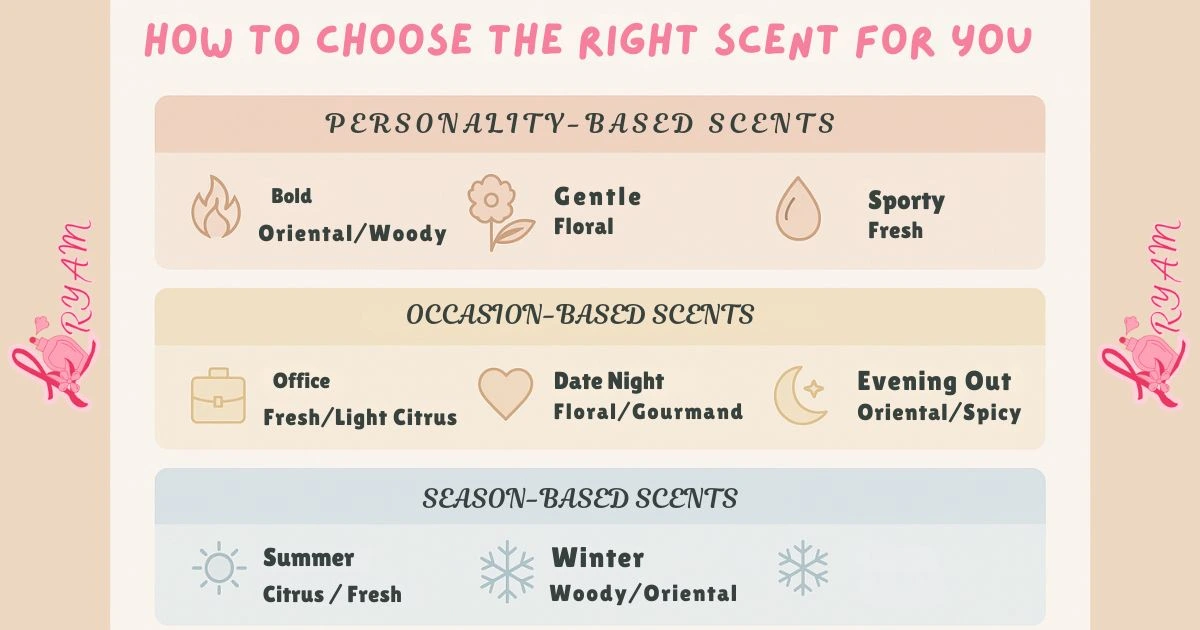
🔬 Scent Types Beyond Perfume
Fragrance families also apply to:
🕯️ Candles
🧴 Skincare products
🧺 Laundry & linen sprays
🌬️ Home diffusers & room sprays
So if you love “woody perfumes,” you’ll probably enjoy cedarwood-scented candles too.
FAQs About Types of Scents
What are the main types of scents?
Floral, woody, oriental (amber), and fresh are the four primary fragrance families.
Which perfume scent lasts the longest?
Oriental and woody scents tend to last the longest due to heavier base notes like amber and patchouli.
What’s the difference between floral and fruity scents?
Floral scents use flowers like rose or jasmine, while fruity scents highlight fruits like peach or apple.
Is gourmand a type of scent?
Yes. Gourmand perfumes feature edible, dessert-like notes such as vanilla, caramel, and chocolate.
How do I know what scent suits me best?
Sample different types based on season, setting, and personality and see how they develop on your skin.
Keep Exploring
Understanding the types of perfume scents helps you choose fragrances that resonate with your mood, style, and season.
Whether you’re building a personal scent library, layering oils, or just learning, knowing your fragrance family is the first step to smelling unforgettable.
Ready to find your signature scent? Start by exploring floral, woody, or gourmand perfumes and discover what makes you feel most like you.

